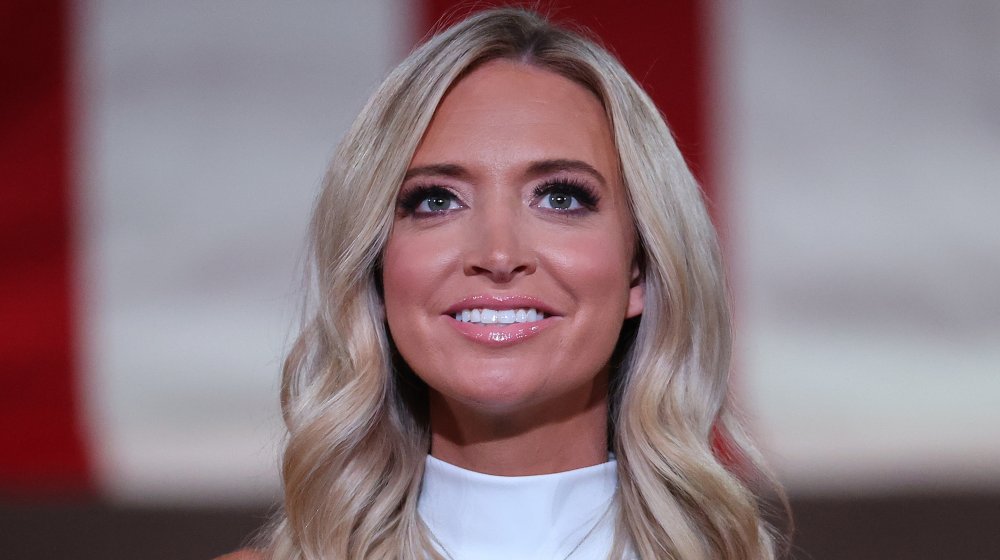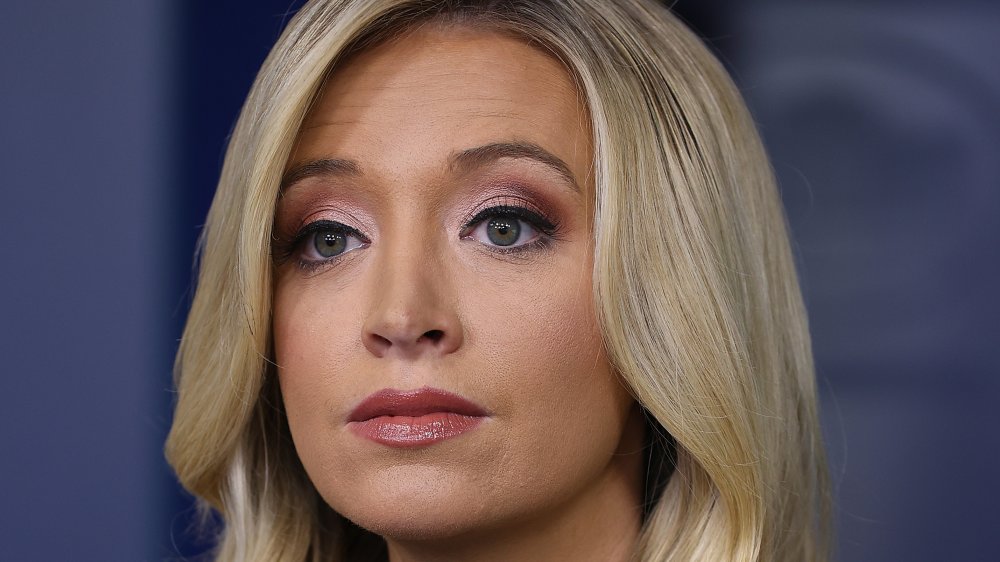The Real Reason Kayleigh McEnany Had A Double Mastectomy
As the White House's newest press secretary, Kayleigh McEnany is accustomed to addressing reporters' hard-hitting questions. But when the Harvard Law School graduate took to the podium on the third night of the 2020 Republican National Convention, she was not there to talk politics. Instead, McEnany tugged at the audience's heartstrings as she discussed her difficult decision to undergo a double mastectomy.
"It was days before Christmas, and I was 21 years, old when I got a call that changed my life," McEnany said (via CNN). "It was my doctor informing me that I had tested positive for the BRCAII genetic mutation — a mutation that put my chances of breast cancer at 84%. It was the same mutation that my mom had, compelling her to get a preventative mastectomy — removing her breast tissue but protecting her from a disease that has taken far too many of our mothers, our sisters, our friends."
McEnany explained that eight women in her family were diagnosed with breast cancer over the years — several while still in their 20s — so on May 1, 2018, she underwent a preventative double mastectomy of her own. "I was scared. The night before I fought back tears, as I prepared to lose a piece of myself," she added. "But the next day, with my mom, dad, husband, and Jesus Christ by my side, I underwent a mastectomy, almost eliminating my chance of breast cancer— a decision I now celebrate."
McEnany has since become an advocate for the preventative procedure.
Kayleigh McEnany says she 'will never die of breast cancer'
Before Kayleigh McEnany told the Republican National Convention about her health scare, the new White House press secretary wrote about her fears ahead of her double mastectomy in a 2018 op-ed for Fox News.
"On Tuesday morning, I will be put to sleep and all of my breast tissue will be removed," McEnany wrote. "When I wake up, I will see a new, different, irreversible version of myself. That scares me." She said that when she tested positive for the same genetic mutation that spawned her mother's double mastectomy, McEnany was overwhelmed by a "cascade of uncontrollable tears" as she told her family. She added, "After a long embrace, my dad offered those sage words that I have carried with me: 'Kayleigh, you know your weakness. We all have one in life, but you know yours. You know your weakness, and you can attack it head on.'" And that's precisely what she did.
While McEnany endured "aggressive, routine surveillance" throughout her 20s, she knew her chances of developing cancer would grow exponentially as she approached 30. Thus, thanks to the "women who so openly and publicly shared their experiences" before her, McEnany made the difficult — albeit necessary — decision to undergo surgery. "Ahead of me will be a cancer free life, where I can confidently say, 'I will never die of breast cancer,'" she concluded.
We only wish all breast cancer patients — past, present, and future — could experience the same fate.


